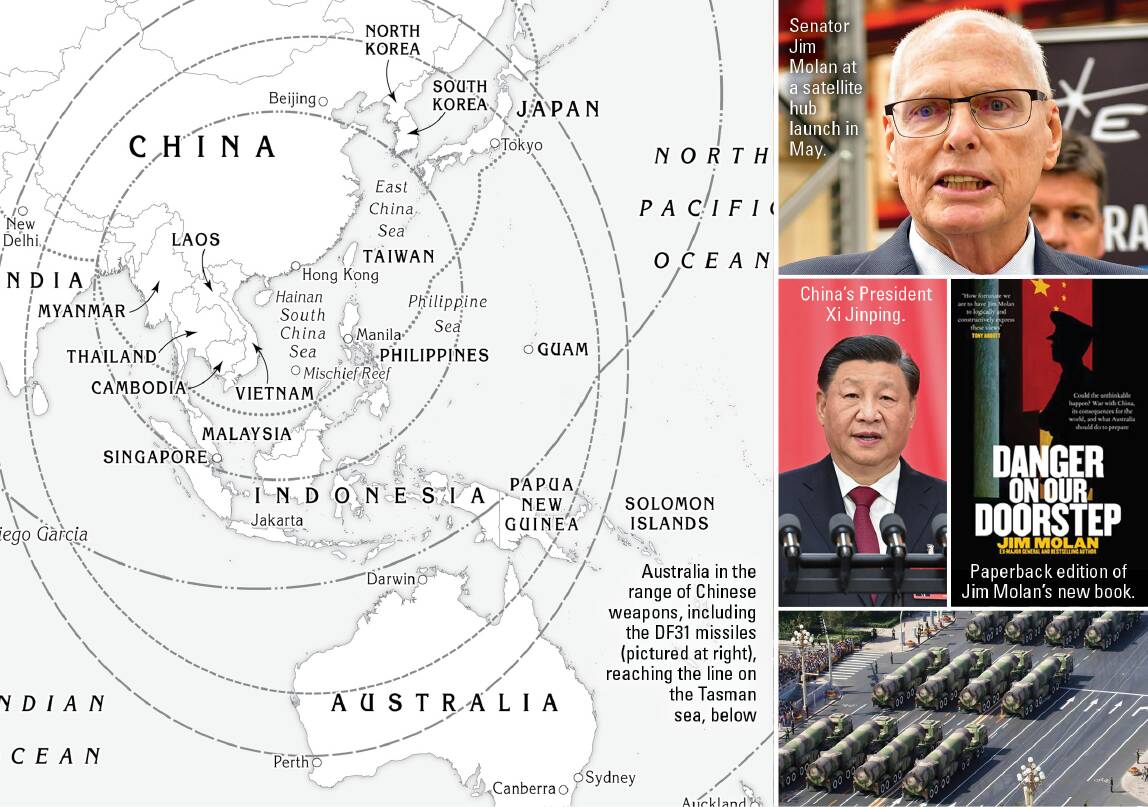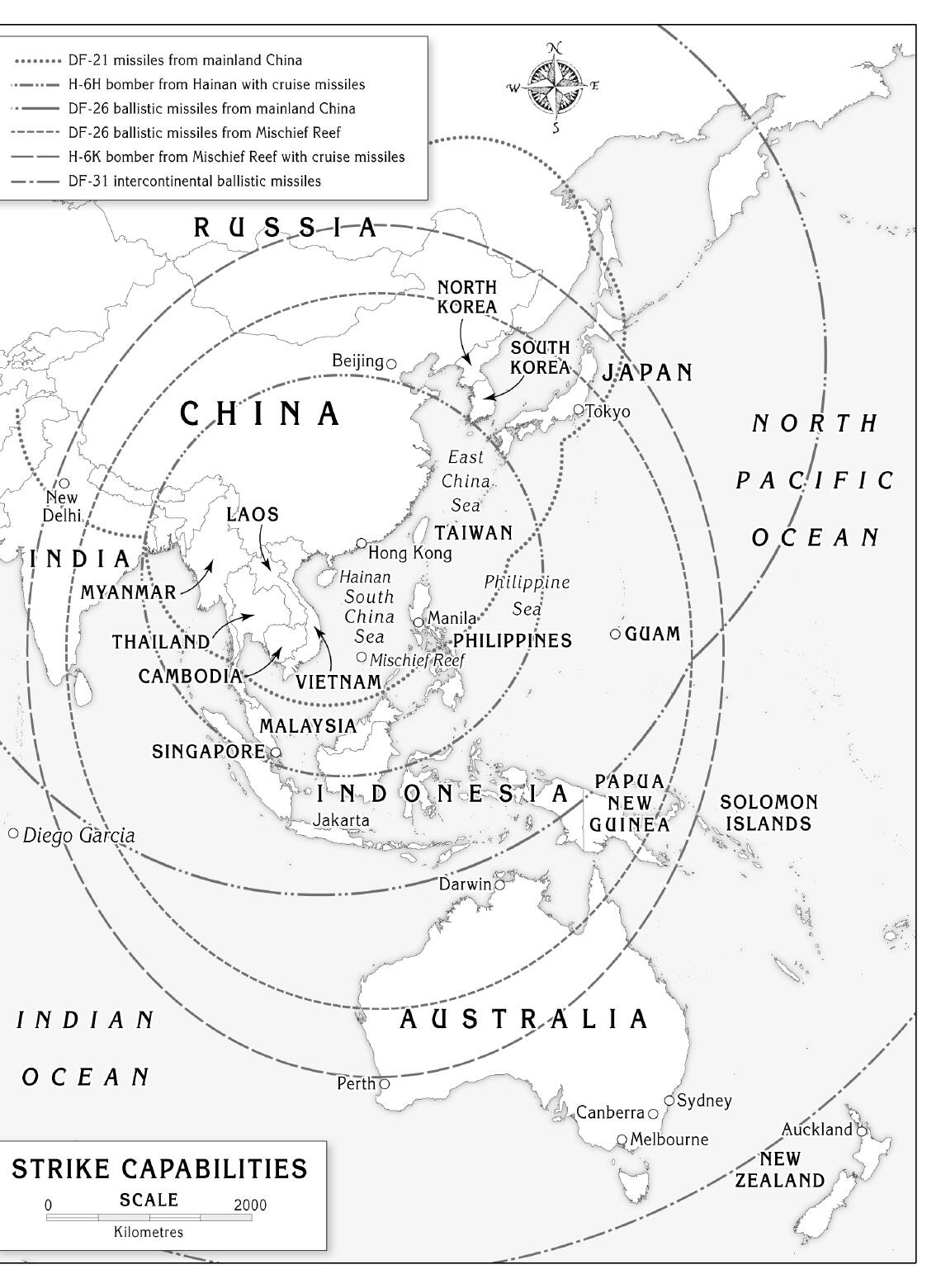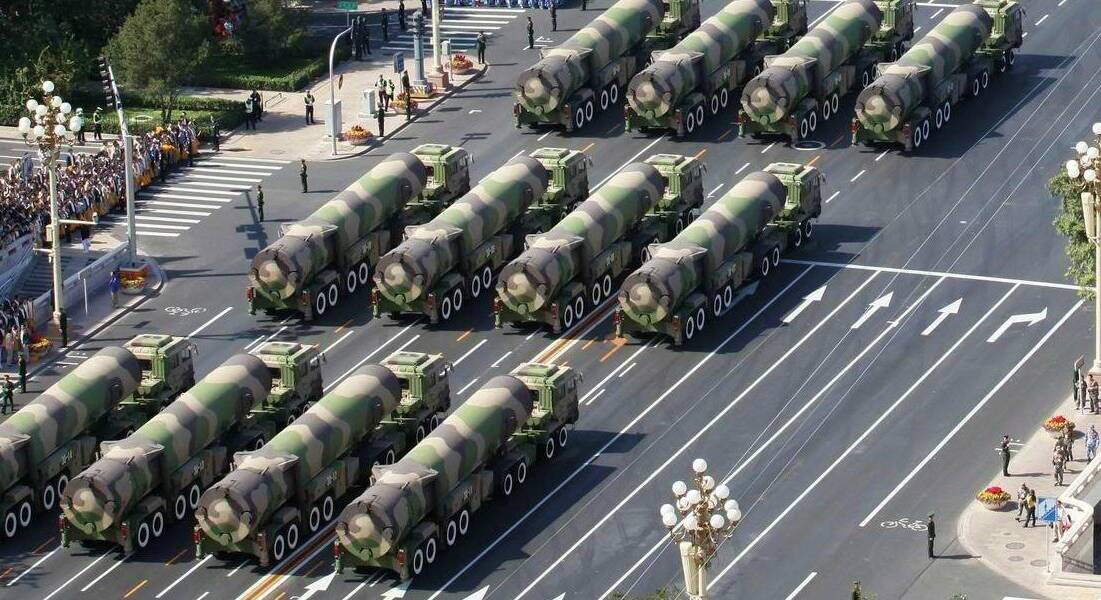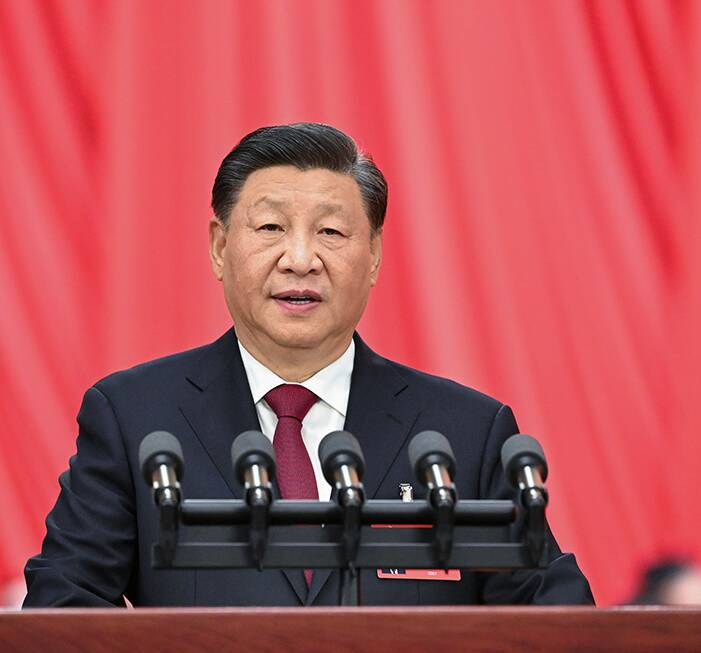
I HAVE just finished Liberal Party Senator Jim Molan's warning to this nation, a book exploring a war with China and its consequences for the world, titled Danger On Our Doorstep, published in August but given little attention so far despite its explosive content and conclusions.
It's not a book that fills the reader with optimism, and its prologue - a war scenario that Molan thinks is "possible and ... more likely than most ... world leaders are saying" - is a truly chilling read, not least because of the long-range missiles he says could rain down on Williamtown RAAF base.
"Cruise missiles launched from the (Chinese) subs are easily able to destroy Australia's fleet of F-18F Super Hornet fighters, Growler electronic warfare aircraft and most of the F-35 fighter aircraft sitting on criminally unprotected bases in the north and the east of the country," Molan writes in a prologue titled "Out Of The Blue?".
That's us in "the east".
The Super Hornets and the Growlers are at Amberley, 50 kilometres south-west of Brisbane, but the F-35 Joint Strike Fighters are based at Williamtown (with some at Tindal in the Northern Territory).
Williamtown also has the RAAF's fleet of six 6 E-7A Wedgetail airborne early warning and control (AEWC) aircraft, which are modified Boeing 737s carrying advanced electronics enabling them - the RAAF says - to "coordinate a joint air, sea and land battle in real time".

Molan's envisaged attack on Williamtown is part of a broader Chinese attack on Australia, which would be a secondary concern beside its main target, the United States.
Australia, Molan argues, has lived in peaceful comfort since WWII, and the battles we have entered were wars of choice as much as necessity.
Molan's message is that Australia - and our "one-shot defence force" - are woefully under prepared for what may be coming. In clear, logical steps, he points out that it takes more than just a military force to prosecute a war.
There needs to be "a nation" behind that military.
"If a regional war comes to pass, Australia cannot get away with what we have got away with for decades: sending a minimal force and our national flag, but not sending hard, strong war-fighting forces," Molan says in the chapter about current policy.
"To deter China - if there is a chance to deploy forces before China attacks, which may not be the case - sending only one token frigate and a few non-combatant aircraft, as we usually do, would make this country a laughing stock in the eyes of our allies.
"In the next regional war, if there is time, Australia will find that it must commit forces with a view to winning, not just participating, as has been our practice for far too long.
"An existential threat from China requires a committed response by Australia.

"If Australia does send a substantial force that is prepared to fight and not just show the flag, it is likely there will be severe casualties.
"And if the scenario that I predict in this book comes to pass, then many ships and planes will be lost."
As opposition leader Peter Dutton says in his foreword to Danger On Our Doorstep, Molan has "thought and talked about war for 40 years".
He retired from the military at the rank of Major General in 2008, having served in various theatres including a year (2004) as chief of operations for the multinational forces in Iraq.
On Friday he emailed me to say: "The Australian Defence Force never been better for the tasks we have performed for last 80 years.
"But for the current strategic environment it is totally inadequate.
"It is a one shot defence force which lacks lethality (not enough force), sustainability (cannot fight for long enough) and mass (not big enough)."
Molan might be too hawkish for most tastes, but if you're sick, you go to a doctor. If the drums of war are beating - and they absolutely are - then you don't turn to a peacenik for advice.

To return to Molan's "not only possible but likely" worst-case scenario, he envisages a growing sense of confusion one morning as everyday Australians wake to find the digital world has collapsed.
A few people the night before had seen an unusual display of shooting stars, but it was impossible to find anything about it because the net had crashed and mobile phones weren't working.
Regular readers may remember a column I wrote on September 3, based on a Hunter Defence Conference address by Cessnock-born Adam Gilmour, head of Queensland rocket company Gilmour Space.
Gilmour said the next war would start with the shooting out of defence-crucial satellites, and the cutting of the undersea communications cables that drive today's near-seamless world wide web.
Molan says the same, and in his scenario, China - with a list of grievances going back to the Opium Wars - decides it must fight to achieve its twin aims of "reducing US power in the Pacific and reincorporating Taiwan".
I don't have room to spell out the full story, except to say the above map plotting the "strike capabilities" of Chinese missiles and bombers shows they can well and truly hit Australia, and that Molan cites plenty of evidence to suggest that a US "win" in a war with China is by no means certain.
And there's a closing epilogue, "A New Reality", that canvasses what China might expect of its post-war "vassal state".
That's us, by the way. Molan says we need a national debate on this. I agree.
Reading his book would be a good place to start.

WHAT DO YOU THINK? We've made it a whole lot easier for you to have your say. Our new comment platform requires only one log-in to access articles and to join the discussion on the Newcastle Herald website. Find out how to register so you can enjoy civil, friendly and engaging discussions. Sign up for a subscription here.







